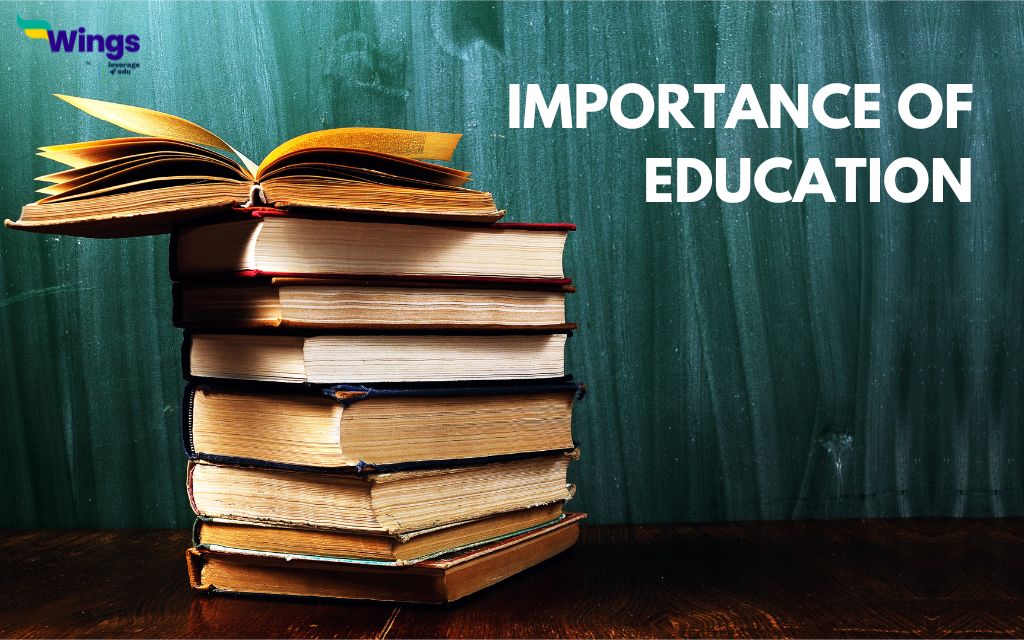In today’s fast-paced and ever-changing world, education has become an indispensable tool that can help individuals reach their full potential and achieve success. With technology advancing at a rapid pace, the need to continuously learn and adapt is greater than ever before. In this blog post, we will explore the power of learning and why education matters more now than it ever has. Whether you’re a student or professional seeking new opportunities, understanding the value of education is crucial for unlocking your true potential in life.
Benefits of Education
Education has always been important, but it is more important than ever in today’s world. With the ever-changing landscape of the global economy, the need for a well-educated workforce is more evident than ever. A quality education can provide individuals with the knowledge and skills they need to be successful in today’s economy.
An educated workforce is essential for a country’s economic growth and competitiveness. In order to attract and retain businesses, a country must have a skilled workforce that can provide the services that businesses need. An educated workforce also leads to higher productivity and innovation, which are important drivers of economic growth.
In addition to promoting economic growth, education also helps to reduce poverty and income inequality. Education gives people the skills they need to get better jobs and earn higher incomes. It also helps them to participate fully in society and make informed decisions about their lives. Education is thus an important tool for reducing poverty and income inequality.
Education plays a vital role in promoting social cohesion. By providing individuals with the opportunity to interact with people from different backgrounds and cultures, education can help to break down barriers between groups of people. It can also promote understanding and respect for diversity, which are essential ingredients for social cohesion.
The Different Forms of Education
There are many different types of education, each with its own advantages and disadvantages. The most common forms of education are formal education, informal education, and self-education.
Formal education is what most people think of when they think of education. It is the type of education that is provided by schools, colleges, and universities. Formal education has the advantage of being structured and organized. It also has the advantage of being taught by qualified teachers who have a lot of experience in their field. However, formal education can be expensive, and it can take a long time to complete.
Informal education is often less expensive than formal education, and it can be more flexible in terms of scheduling and location. However, informal education often lacks the structure and organization of formal education, and it may not be taught by qualified teachers.
Self-education is the process of learning on your own without formal or informal instruction. Self-education has the advantage of being free (assuming you already have access to resources like books, internet, etc.), and you can learn at your own pace. However, self-education can be difficult because you have to be very disciplined and motivated to stay on track. Additionally, without feedback from a teacher or other students, it can be easy to make mistakes or miss important information.
How Education Helps People Grow and Develop
Education is critical to personal growth and development. It helps people acquire the knowledge, skills, and values that they need to succeed in life. A good education can help people attain their dreams and goals, and it can also provide them with the opportunity to contribute to society in a meaningful way.
A quality education opens up doors of opportunity and allows people to develop to their fullest potential. It helps them become knowledgeable, skilled, and well-rounded individuals who are able to make a positive difference in the world. Education is the key to unlocking a person’s potential and empowering them to lead a successful and fulfilling life.
The Importance of Lifelong Learning
Lifelong learning is critical in today’s world. With technology and the economy constantly changing, it’s important to keep your skills and knowledge up-to-date. Here are four reasons why lifelong learning is more important than ever:
1. To stay competitive in the workforce.
In order to be successful in today’s job market, you need to continuously learn and adapt to new technologies and trends. If you don’t, you run the risk of being left behind by your competition.
2. To keep your mind sharp.
As we age, it’s important to keep our minds active and engaged. Learning new things helps improve cognitive function and can even delay the onset of dementia.
3. To improve your mental health.
Lifelong learning can also help reduce stress and anxiety, and increase feelings of self-worth and satisfaction. It can also be a great way to meet new people and socialize.
4. To make smarter decisions about your life choices.. Education gives us the tools we need to make informed decisions about our lives. Whether it’s choosing a career, investing in a home, or saving for retirement, having the right information can help us make better choices that lead to a happier, healthier life.
Conclusion: The Impact of Education on Society
It is clear that education has a profound impact on society. By educating people, we equip them with the tools they need to lead successful and fulfilling lives. Education opens up opportunities and helps people to reach their full potential.
A well-educated population is essential for the development of a thriving society. It is through education that we gain the knowledge and skills needed to contribute to the economy and society as a whole. An educated population is also better able to solve problems and make informed decisions.
Education also promotes social cohesion and understanding. It helps us to appreciate the diversity of our world and to develop tolerance and respect for others.
It is evident that education is vital for the advancement of any society. It is through education that we gain the skills and knowledge needed to build a prosperous future for all.

